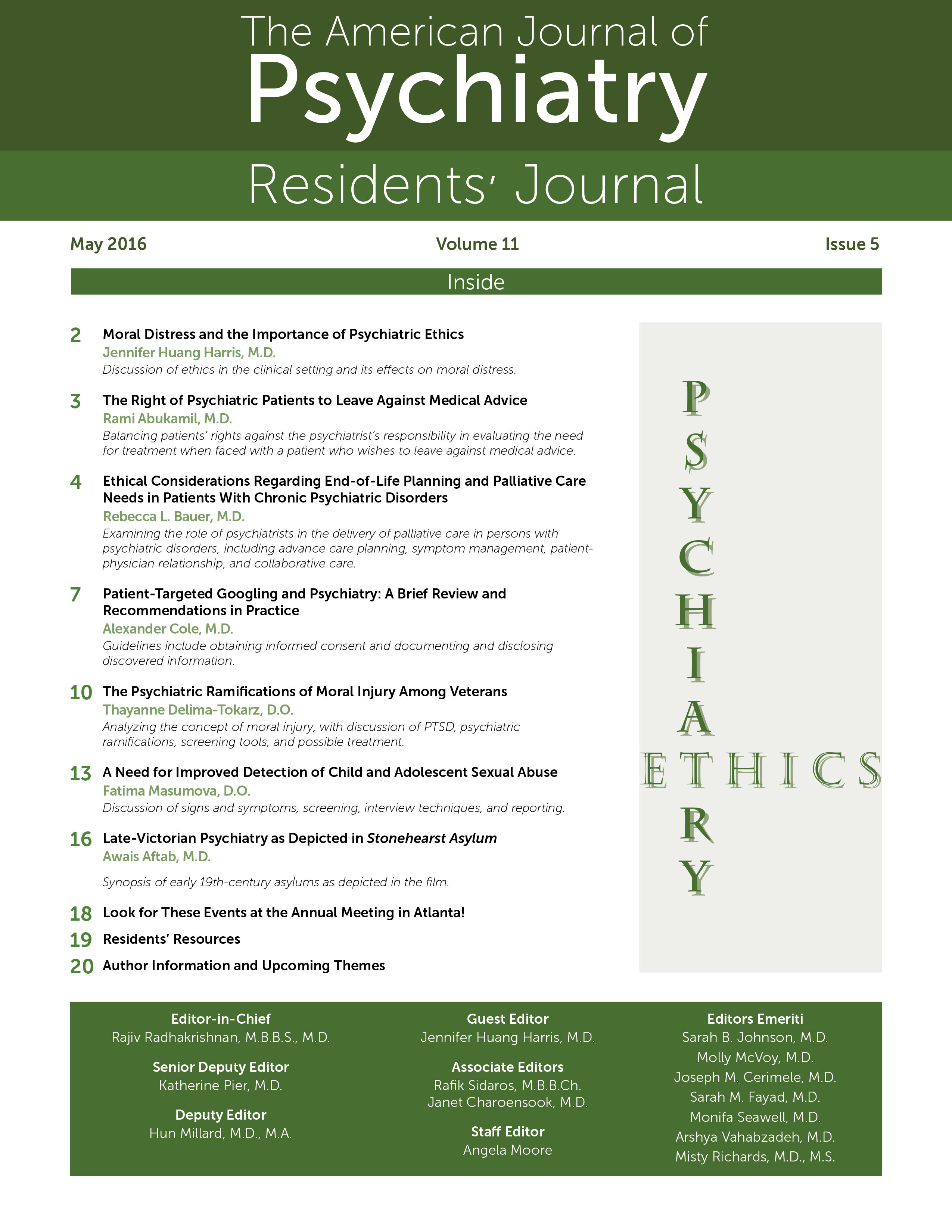Patient-Targeted Googling and Psychiatry: A Brief Review and Recommendations in Practice
A Framework for Incorporating PTG Into Practice
Framing a Search
Obtaining Informed Consent
Completing a Search and Assessing Obtained Information
Documenting and Disclosing Discovered Information
Reassessment of Continued Searches
Conclusions
| Appropriate Usea | Inappropriate Use |
|---|---|
| Identifying a patient who is unwilling or unable to identify themselves | Physician curiosity |
| Acquisition of information critical to medical decision making | – Verifying clinically irrelevant aspects of a patient’s history |
| – Attempting to identify and contact a patient’s family members if necessary for disposition planning | – Searching for personal information irrelevant to a patient’s care |
| Searching for information necessary to contact a patient’s collateral if the patient cannot provide contact information | Searching for information that may be relevant, but not necessary, to providing clinical care |
| Contacting patients lost to follow-up in clinically urgent scenarios | – Searching a patient’s social media profile(s) for evidence of substance use |
| – Informing patients of abnormal test results that require further evaluation and treatment | – Using social media to verify aspects of a patient’s social history |
| Attempting to contact a patient when clear evidence of crisis is present | First-line use without initially attempting more focused information-gathering techniques |
| Routine searching for information on all patients regardless of clinical circumstances or urgency |
Key Points/Clinical Pearls
Acknowledgments
References
Information & Authors
Information
Published In
History
Authors
Metrics & Citations
Metrics
Citations
Export Citations
If you have the appropriate software installed, you can download article citation data to the citation manager of your choice. Simply select your manager software from the list below and click Download.
For more information or tips please see 'Downloading to a citation manager' in the Help menu.
View Options
View options
PDF/EPUB
View PDF/EPUBGet Access
Login options
Already a subscriber? Access your subscription through your login credentials or your institution for full access to this article.
Personal login Institutional Login Open Athens loginNot a subscriber?
PsychiatryOnline subscription options offer access to the DSM-5-TR® library, books, journals, CME, and patient resources. This all-in-one virtual library provides psychiatrists and mental health professionals with key resources for diagnosis, treatment, research, and professional development.
Need more help? PsychiatryOnline Customer Service may be reached by emailing [email protected] or by calling 800-368-5777 (in the U.S.) or 703-907-7322 (outside the U.S.).
